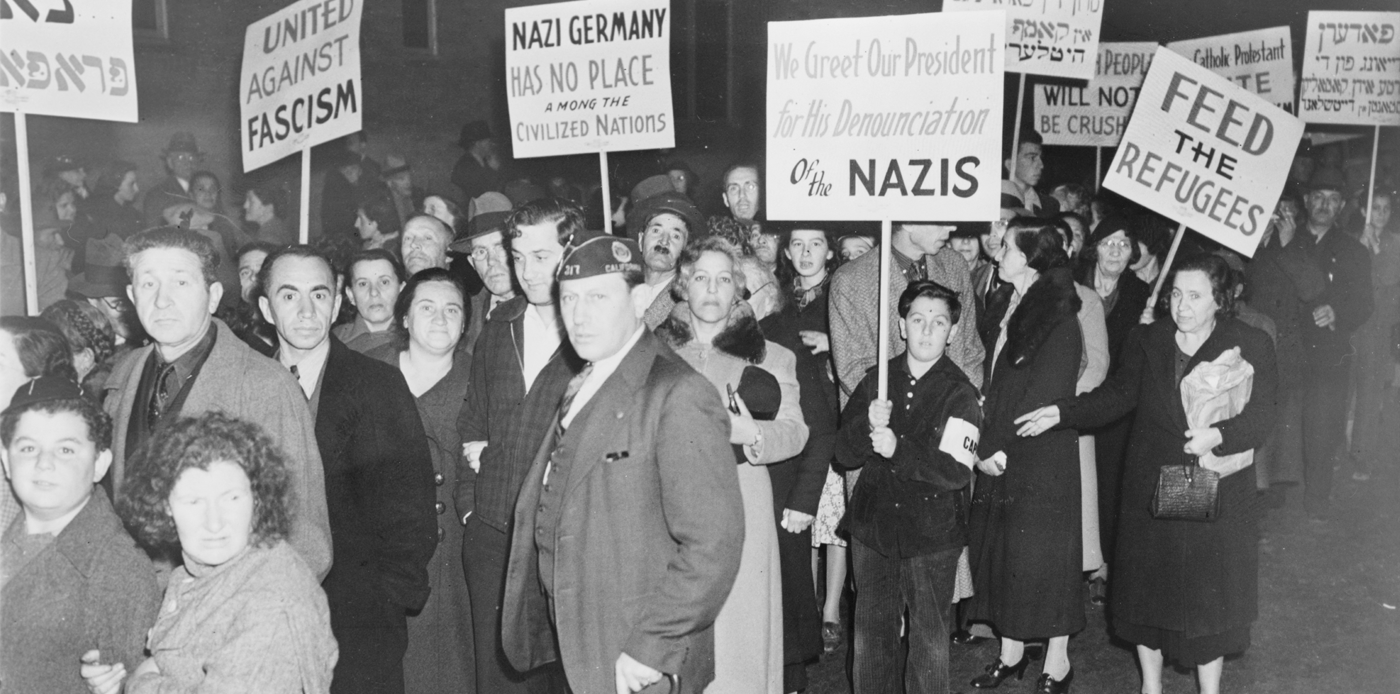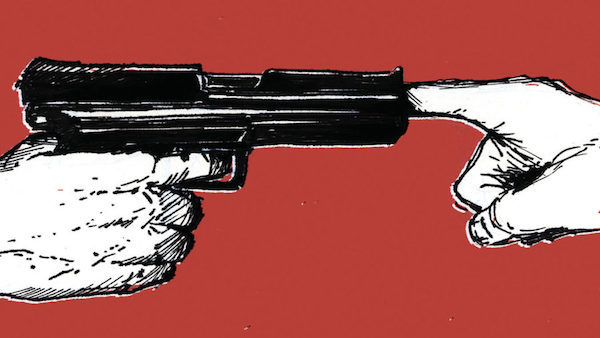A college dean’s demand that Jewish students remove the word “Jewish” from their event honoring the victims of October 7 has sparked outrage, and rightly so. Sadly, however, the dean’s action was not unprecedented.
On October 10, 2023, students at Middlebury College, in Vermont, showed Dean of Students Derek Doucet their poster for an upcoming vigil honoring the 1,200 Jews massacred, tortured, raped and beheaded by Palestinian Arab terrorists three days earlier. The poster’s headline read, “Stand in Solidarity with the Jewish People.”
That was too much for Dean Doucet, according to emails obtained by the Washington Free Beacon. He told the students to stop focusing so much on the Jews and be “more inclusive.” The vigil should “honor all the innocent lives lost,” the dean asserted. It should refer to “tragedies that have struck Israel and Gaza.” The dean added a dark note: calling for solidarity with the Jews might cause “unhelpful reactions,” he warned.
Doucet does not seem to have objected when the Muslim Students Association at Middlebury held a “Vigil for Palestine.” It does not appear to have been a particularly inclusive event, according to the extensive coverage by the student newspaper, The Middlebury Campus. The vigil attendees did not mourn for the Jews slaughtered by Hamas. To add insult to injury, Middlebury’s Vice President of Equity and Inclusion, Khuram Hussain, attended the “Vigil for Palestine” but did not attend the Jewish vigil.
There was a troubling precedent for Dean Doucet’s actions during the Nazi years, when President Franklin D. Roosevelt and his administration repeatedly downplayed or denied the Jewish identity of Hitler’s victims.
In September 1933, Henry Morgenthau, Jr. visited the White House to request a public statement about the persecution of Jews in Nazi Germany. FDR told Morgenthau, his longtime friend and soon-to-be Treasury Secretary, that he preferred to say something about human rights abuses in Germany in general, without focusing on the Jews. In the end, however, the president made no statement at all.
In the eighty-two press conferences President Roosevelt held in 1933, the subject of the oppression of Jews in Europe arose just once, and not at Roosevelt’s initiative. It would be five more years, and another 348 presidential press conferences, before FDR would again say anything publicly about the Jews.
Even at the peak of the Holocaust, Roosevelt and his administration avoided mentioning that Jews were being targeted by the Nazis. The U.S. statement announcing a conference in Bermuda in 1943 to discuss the Jewish refugee crisis emphasized: “The refugee problem should not be considered as being confined to persons of any particular race or faith.”
Senior American, British, and Soviet officials, meeting in Moscow in late 1943, issued a statement threatening postwar punishment for Nazi war crimes against “French, Dutch, Belgian or Norwegian hostages…Cretan peasants…[and] the people of Poland”—but not Jews. President Roosevelt did not use the word “Jews” even in his 1944 statement commemorating the anniversary of the Warsaw Ghetto revolt.
Early in 1944, officials of the U.S. War Refugee Board drafted a proposed presidential message to the people of Axis-occupied countries, warning them not to collaborate in atrocities against Jews. White House aides informed the Board that President Roosevelt “wanted the statement rewritten so as to be aimed less directly at the atrocities against the Jews.”
The final version deleted the reference to Jews being murdered “solely because they were Jews.” It removed three of the statement’s six references to Jews. And it added three opening paragraphs naming various other nationalities who were suffering because of the war.
In September of that year, the War Refugee Board ran into a similar problem with General Dwight D. Eisenhower, Supreme Commander of the Allied forces in Europe. The Board drafted a leaflet which it wanted U.S. planes to drop over Europe, warning civilians to refrain from participating in Nazi atrocities against Jews. Eisenhower insisted on deleting the leaflet’s reference to Jews. The final version urged readers not to “molest, harm or persecute” any of the “great many men” being held by the German authorities, “no matter what their religion or nationality may be.”
Arthur Szyk, the famous artist and Jewish activist, charged that the persecution of Europe’s Jews was being “treated as a pornographical subject–you cannot discuss it in polite society.”
There was a reason behind the Roosevelt administration’s policy of downplaying or denying the Jewish identity of Hitler’s victims. The president and his advisers were concerned that if they publicly recognized that the Jews were being singled out, then “the various [Allied] Governments would expose themselves to increased pressure from all sides to do something more specific in order to aid these people,” as one State Department official explained in an internal discussion.
The action by the Middlebury College dean stems from a similar mindset. Focusing attention on the Jews who were murdered and raped on October 7 could increase pressure on the dean to do something about the campus extremists who are cheering the murderers and rapists—just as focusing attention on the Jewish victims during the Holocaust risked creating pressure to do something about their plight. Eighty years have passed, and the names and places have changed, but it seems the tragic phenomenon of “the unmentionable Jew” is still with us.
///






